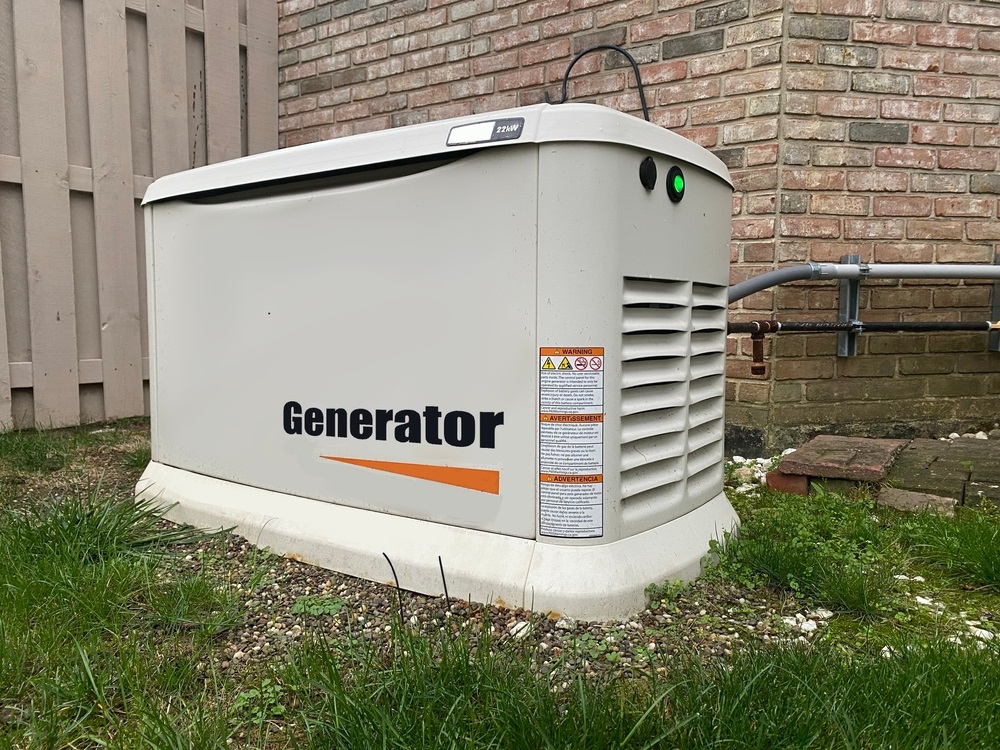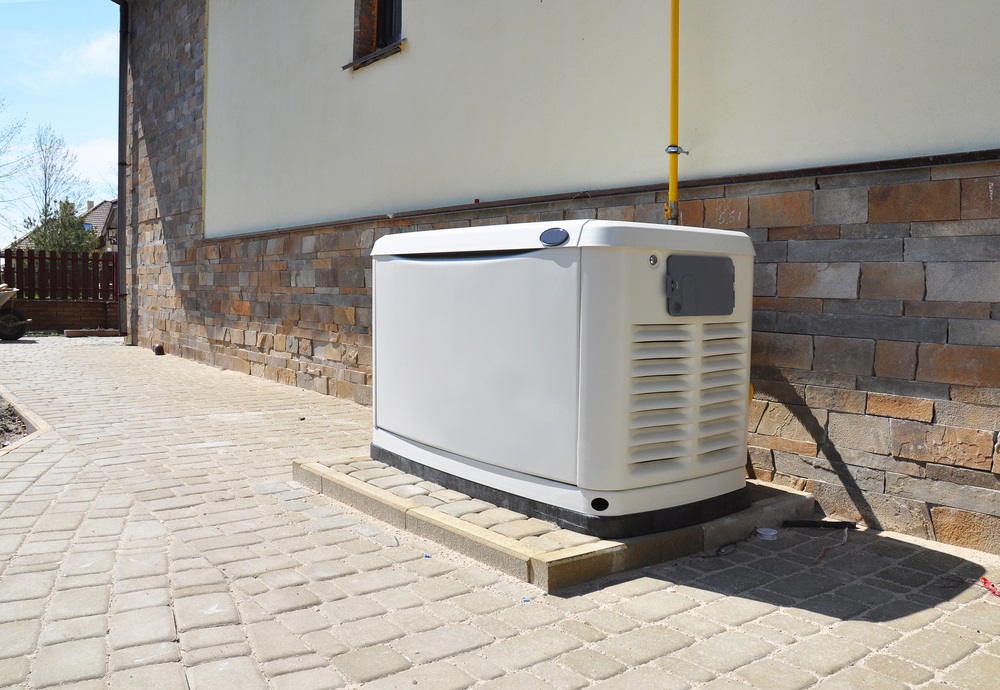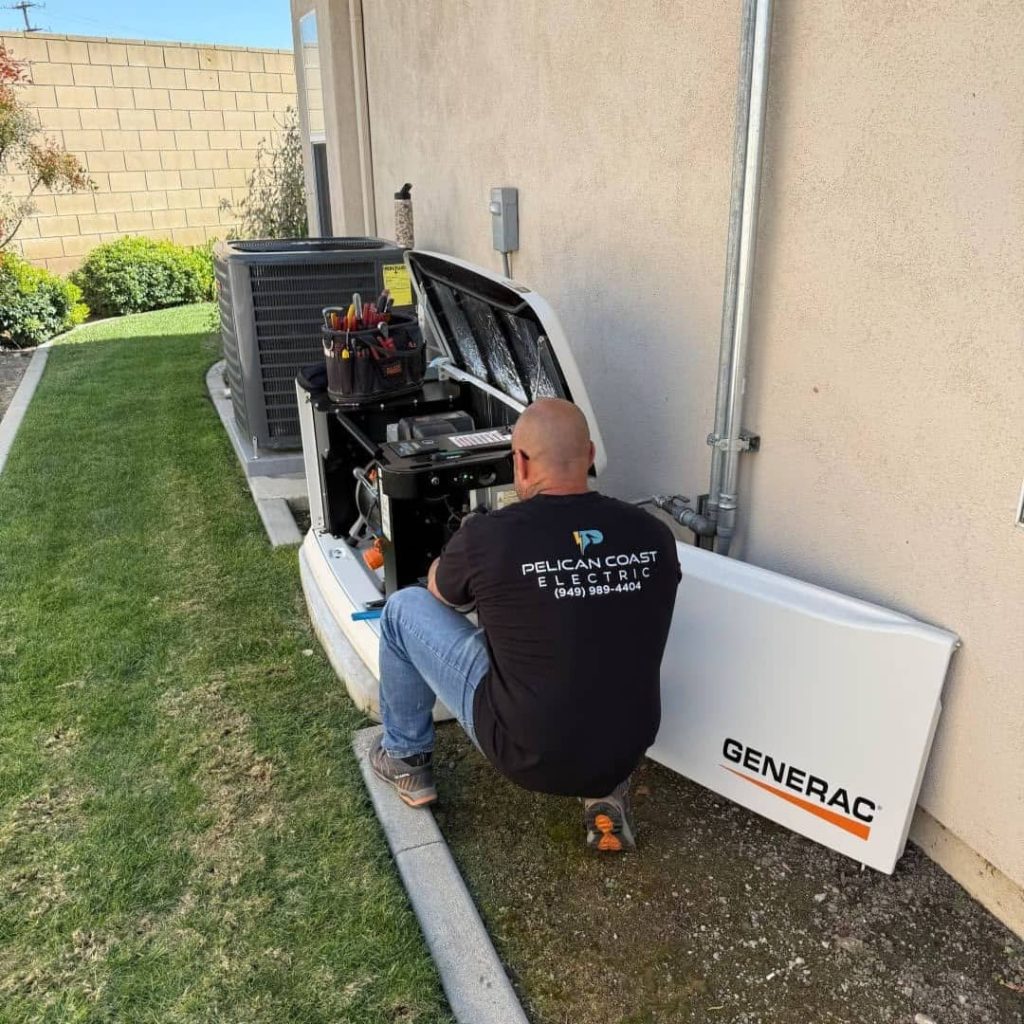Power outages aren’t just inconvenient—they’re disruptive. For families, outages can mean spoiled groceries, no heating or cooling, inoperable medical equipment, or even compromised security systems. The solution? A reliable home generator. But with so many models and sizes on the market, how do you choose the right home generator for your needs?
At Pelican Coast Electric, we specialize in helping homeowners across the Bay Area and beyond find dependable backup power systems, including Generac generators—one of the most trusted names in the industry. Whether you’re unsure about what size generator to run a 1,500 sq ft house, or looking for whole-house coverage for a 2,500 sq ft property, this guide is for you.
Why Every Home Should Have a Generator
A home generator is more than a luxury—it’s a safety net. With California’s aging electrical grid and increasing climate instability, rolling blackouts and surprise outages are more common than ever.
Here’s what a home generator can protect:
- Food: Keeps your fridge and freezer running.
- Health: Supports life-saving medical devices.
- Comfort: Maintains heating or cooling systems.
- Work: Ensures you stay connected in remote work scenarios.
- Safety: Keeps security systems operational.
The investment in a backup generator quickly pays for itself in comfort, safety, and long-term savings.
Understanding Your Home’s Power Requirements
The first step to choosing the right home generator is knowing your power needs.
Step 1: Make an Essentials List
Which appliances or systems are non-negotiable during an outage? Common essentials include:
- Refrigerator and freezer
- Lights and fans
- Water heater or tankless systems
- HVAC system or space heaters
- Internet router, modem, and work-from-home devices
- Medical devices like CPAPs or oxygen concentrators
- Sump pump and well pump (if applicable)
- Garage door openers and security systems
Step 2: Add Up Wattage
Calculate both running watts and starting watts for each item. Starting wattage—also called surge wattage—is what appliances need to initially power on.
Here’s a quick breakdown:
- Refrigerator: 800W running / 2200W surge
- Microwave: 1000W average
- Furnace fan: 800W running / 1600W surge
- Well pump: 1000W running / 2100W surge
- Window AC: 1200W running / 1800W surge
Adding these gives you a rough estimate of your critical load. From there, you can figure out the right size generator for your home.
What Size Generator Do I Need for a 2,500 Square Foot House?
Many homeowners assume generator size depends only on square footage—but that’s not the full picture.
Factors That Influence Generator Size:
- Number and type of appliances
- Whether you want to power essentials or your entire home
- Your HVAC system size (central air can draw 3000W+)
- Garage equipment or electric car charging setups
- Fuel type and generator efficiency
General Sizing Estimates for a 2,500 Sq Ft Home:
- Essentials only: 8,000–10,000 watts
- Partial home coverage: 12,000–17,000 watts
- Full home backup: 20,000–24,000 watts
For full coverage, Pelican Coast Electric recommends Generac’s 22kW Guardian Series—reliable, fuel-efficient, and designed to handle heavy home loads.
What Size Generator to Run a 1,500 Sq Ft House?
In a 1,500 square foot home, your power needs may be lower, but not negligible. If you’re working from home, running a heater, or storing refrigerated medicine, even a small outage can be costly.
Recommended Sizes:
- Basic coverage (refrigerator, lights, Wi-Fi): 5,000–7,500 watts
- Moderate needs (add TV, microwave, sump pump): 8,000–10,000 watts
- Whole-house backup: 12,000–14,000 watts
Even for smaller homes, we often suggest Generac standby generators for peace of mind, automation, and efficiency.

Types of Home Generators: Know Your Options
Not all home generators are created equal. Understanding your options will help you select the right generator for home use.
1. Portable Generators
- Affordable and great for limited power use
- Runs on gasoline or propane
- Requires manual setup and extension cords
- Limited runtime (refueling every 8–12 hours)
2. Inverter Generators
- Clean, stable power for electronics
- Ultra-quiet and energy-efficient
- Lightweight and portable
- Ideal for camping or emergency kits, but low capacity
3. Standby Generators
- Permanently installed outside your home
- Kicks on automatically when power goes out
- Connects to propane or natural gas lines
- Powers some or all circuits depending on size
- Requires professional installation by Pelican Coast Electric
Fuel Types: What’s Best for Your Home?
Choosing the right fuel type impacts cost, longevity, and convenience.
- Gasoline: Cheap but hard to store long-term. Best for portables.
- Propane: Cleaner burning, longer shelf life. Requires on-site tanks.
- Natural Gas: Unlimited supply via utility line. Best for standby units.
- Diesel: High energy output, but more common in commercial settings.
Generac generators can be configured for propane or natural gas—both excellent options for residential use.
How to Set Up a Generator for Your Home
Setting up a generator isn’t as easy as plugging it into a wall outlet—and it shouldn’t be.
For Portable Generators:
- Place at least 20 feet from your home to avoid carbon monoxide risks
- Use heavy-duty extension cords or a manual transfer switch
- Never backfeed your home’s electrical panel (extremely dangerous)
- Store fuel safely in approved containers
For Standby Generators:
- Professional installation is essential
- Includes:
- Concrete pad placement
- Connecting gas line (natural gas or propane)
- Installing an automatic transfer switch
- Integrating with the main electrical panel
- Testing under load
- Pelican Coast Electric handles the entire process—from permits to final inspection
Key Features to Look For in a Home Generator
When researching how to select generator for home use, consider the following features:
- Automatic Transfer Switch (ATS): Seamless power transition
- Remote Monitoring: Control and check status via app
- Load Management: Prioritizes essential circuits during high demand
- Weatherproof Enclosure: Necessary for outdoor installation
- Noise Level: Look for under 70 decibels for neighborhood-friendly operation

Generator Costs: Budgeting for Backup Power
Costs vary depending on generator size, brand, fuel source, and installation.
Estimated Costs:
- Portable Generators: $500–$2,500
- Inverter Generators: $800–$4,000
- Standby Generators: $5,000–$15,000 (including install)
Ongoing Costs:
- Fuel: $20–$40/day during use
- Maintenance: $200–$400/year for standby models
A generator is a long-term investment that boosts home value and keeps your life on track, even during grid failures.
Which Generator is Right for You?
Choosing the best home generator depends on your household size, energy usage, and backup priorities. At Pelican Coast Electric, we help homeowners navigate these choices with expert recommendations tailored to your lifestyle. Here’s a quick breakdown to guide your decision:
- For essential needs (lights, fridge, Wi-Fi): A portable generator between 5,000–7,500 watts is cost-effective and versatile, ideal for short-term outages.
- For smaller homes or sensitive electronics: An inverter generator provides clean, stable power and operates quietly, perfect for apartments or work-from-home setups.
- For whole-home coverage and long-term reliability: A Generac standby generator, ranging from 14,000–24,000 watts, offers automatic activation, runs on natural gas or propane, and supports high-demand homes without manual intervention.
Still unsure? Our licensed electricians can perform a custom load assessment and recommend the perfect fit based on your power usage and budget. Let Pelican Coast Electric help you invest in the right backup power solution today.
Frequently Asked Questions
WHAT SIZE GENERATOR DO I NEED FOR A 2,500 SQUARE FOOT HOUSE?
Depending on how much of your home you want to power, you’ll need a unit that produces 10kW to 24kW. For whole-home coverage, a 22kW Generac generator is ideal.
WHAT SIZE GENERATOR TO RUN A 1,500 SQ FT HOUSE?
A generator in the 7.5kW to 12kW range should provide sufficient backup, depending on your appliances and HVAC system.
HOW TO SET UP A GENERATOR FOR YOUR HOME?
Portable generators require extension cords or manual transfer switches. Standby systems need professional installation. Pelican Coast Electric handles everything from setup to inspection.
HOW TO CHOOSE THE RIGHT SIZE GENERATOR FOR YOUR HOME?
Assess the wattage of essential appliances, add 20% for surge capacity, and match with a generator slightly above your max usage. We offer home assessments to ensure proper sizing.
HOW TO SELECT GENERATOR FOR HOME USE?
Start by defining your must-have appliances during outages, then choose fuel type, portability, and runtime. Pelican Coast Electric offers consultations and installations for all home sizes.
Conclusion
Choosing the right home generator is all about preparation, reliability, and peace of mind. Whether you need to know what size generator you need for a 2,500 square foot house, or you’re exploring how to set up a generator for your house, expert help makes all the difference.
At Pelican Coast Electric, we help families protect what matters most—year-round. Our team specializes in Generac generator installation, generator sizing, and long-term maintenance plans. Get in touch today for a no-pressure quote and take control of your home’s energy security.

